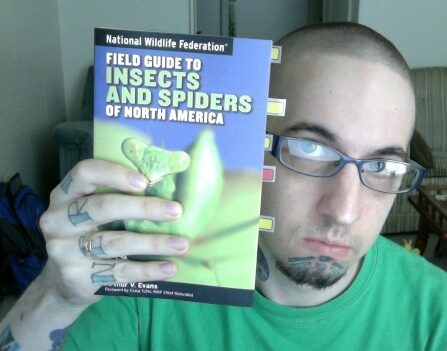Shannon Des Roches Rosa www.squidalicious.com I had no idea autism acceptance and understanding in the UK were so much more culturally ingrained than in the US. Granted, there is still much work to do, and government cutbacks in housing for people with disabilities continue, etc. But the disconnect was shocking. And, I was told, much of it had to do with the National Health Service covering autistic people’s needs as a matter of course. Families don’t need to worry about paying for autism services; they need to worry about getting their kids and family members and selves appropriate services. As a result, according an American parent friend who lives in Yorkshire, there is much less of the catastrophizing of autism than we see in the States. I witnessed these attitudes and approaches during the National Autistic Society‘s (NAS) Professional Conference 2014 in Harrogate. I saw an effective national autism organization…
Tag: advocacy
So what’s going on here? Does my autistic son lack social skills or does he not? The answer is that context matters. Socializing costs a lot of tokens. When he is in a situation that is already difficult for him, he won’t have those tokens to spare.
The U.S. House of Representatives’ Oversight and Government Reform Committee is planning a November 29 meeting on “rising autism rates and the federal government’s response.” From The Hill.com (via Left Brain/Right Brain): The panel, chaired by Rep. Darrell Issa (R-Calif.), has invited witnesses from the National Institutes of Health and the Centers for Disease Control and Prevention, as well as Autism Speaks and other advocacy groups. Autism rates are rising quickly. One in 88 children has been diagnosed with autism spectrum disorder (ASD) by age 8, the CDC reported in March, a dramatic increase from its previous estimates. The Oversight Committee’s witness invitations say the Nov. 29 hearing “will address the federal response to the recent rise in ASD diagnoses, as well as the allocation of government resources for ASD. It will also review research and treatment options for those diagnosed with ASDs.” We at TPGA are concerned that no…
Our editorial team frequently discusses our expectations for autism organizations, both internally and during outreach efforts. We thought it time to formalize those expectations here on our site, as a resource for like-minded individuals. -The Editors At Thinking Person’s Guide to Autism, we believe organizations that support autistic people must adhere to the following five principles: Support, not cure: autism is a naturally occurring human neurological variation and not a disease process to be cured. Medical or health issues that may accompany autism should be addressed independently. Evidence-based medical and clinical interventions: from our inception, we have advocated for helping autistic individuals in ways that are based on peer-reviewed empirical studies and which have been deemed effective by the wider scientific and academic communities. Inclusiveness: Autistic people must have significant, meaningful, and primary roles in all aspects of the organization, especially at board and executive levels with regards to planning…
Jennifer Byde Myers jennyalice.com the cashier: Diapers eh? Expensive. I bet you can’t wait until they are out of those. me: Yes, we’ll be rich. Uh, I have a special needs kid, so it may take awhile. Oh, that’s hard. Yes, mostly for him. He gets frustrated. But he’s doing great. He’s a great kid. He goes to the Amazing Autism Wunderskool. Oh, autism. Is he high or low functioning? Well, those terms really aren’t very accurate. Oh? No. For example, there are some autistics who will go to college, but may still have trouble putting their shoes on the correct foot. I have a friend like that. Does that make sense? Yes. I get it. My son has a lot of trouble with communication. He’s non-verbal, so that makes it more challenging for him to communicate his wants and needs. Huh. I have a neighbor. He’s about 30. He…
Emily Willingham biologyfiles.fieldofscience.com Last week we became aware that a protocol for “treating” autism, called MMS (Miracle Mineral Solution), was presented at the most recent AutismOne conference. The convoluted science behind this “solution” would be enough to turn many people off, but the actual “treatment” is so abhorrent we wanted to make sure that people know the background of MMS. Warning: the links in this post may be a trigger because many of them point to communities that equate autism with damaged goods. -JBM AutismOne has a history of providing a platform for dubious “practioners” to showcase potentially harmful wares to a willing audience. The peddlers at this conference are no different from any other pseudoscience-pusher, including the fact that they are more than willing to take advantage of the pop culture fascination with autism, and induce a gullible audience to part ways with their money, regardless of how ineffectual,…
We’re featuring “Slice of Life” conversations with Autistics of all ages — kids through adults — throughout April’s Autism Acceptance Month. Our goal is to help TPGA readers understand that autistic people are people who have interesting, complicated lives and who are as diverse and varied as any other population united by a label. We are the people in each other’s neighborhoods, and the more we know about each other — the more visible autistic people and children are — the more common autism acceptance will be. That is our hope. Today we’re talking with eleven year old Leo, who prefers action to conversation. He answered the first two questions below himself, otherwise the answers are mostly videos, photos, and his mother’s observations, which she hopes are accurate — and which are in italics. Transcription: What is your name? Leo Rosa. How old are you? Eleven years old. He is…
Mustafa & Kerima We’re featuring “Slice of Life” conversations with Autistics of all ages — kids through adults — throughout April’s Autism Acceptance Month. Our goal is to help TPGA readers understand that autistic people are people who have interesting, complicated lives and who are as diverse and varied as any other population united by a label. We are the people in each other’s neighborhoods, and the more we know about each other — the more visible autistic people and children are — the more common autism acceptance will be. That is our hope. Today we’re talking Mustafa, who loves to swim. His mother Kerima Çevik rephrased our Slice of Life questions so Mustafa could answer them using the iPod app Answers Yes/No. Is your name Mustafa Nuri Cevik? Yes. Is this your favorite website [points to http://www.redfishsoup.com/]? yesyes. Do you have any autistic superpowers? no. Are you happy today?…
We’re featuring “Slice of Life” conversations with Autistics of all ages — kids through adults — throughout April’s Autism Acceptance Month. Our goal is to help TPGA readers understand that autistic people are people who have interesting, complicated lives and who are as diverse and varied as any other population united by a label. We are the people in each other’s neighborhoods, and the more we know about each other — the more visible autistic people and children are — the more common autism acceptance will be. That is our hope. Today we’re talking with fourth grader Jason, whose father blogs at onedadsopinion.blogspot.com. Do you have any autistic superpowers? What are they? Reading. If you count a twelfth grade, I think, reading level as a fourth grader. Also I consider myself a brilliant writer, but I prefer to be tapping keys on the keyboard (I am a touch-typer) than hitting…
We’re featuring “Slice of Life” conversations with Autistics of all ages — kids through adults — throughout April’s Autism Acceptance Month. Our goal is to help TPGA readers understand that autistic people are people who have interesting, complicated lives and who are as diverse and varied as any other population united by a label. We are the people in each other’s neighborhoods, and the more we know about each other — the more visible autistic people and children are — the more common autism acceptance will be. That is our hope. Today we’re talking with entomology academic & enthusiast Jaden, who is also a tattoo collector and musician. What is your name and age? Jaden. I’m 31. Do you have a website? Several: Personal (for my music): theeternalmusic.com Twitter: twitter.com/theeternal Autism advocacy: aspergersissues.tumblr.com Professional (entomology): boyandbugs.blogspot.com What would you like a one-sentence description of yourself to say? Entomologist, musician, and…





